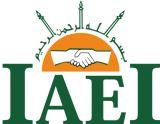Islamic Brand Pada Era Revolusi Industri 5.0
Abstract
This article discusses the phenomenon that is developing in society regarding Islamic brands in the era of the industrial revolution 5.0 which is currently developing. The labeling "Islamic" was used to attract economic development as well as compete for consumers in Indonesia. Islamic Brand here is not only used by brands in Indonesia but also used by foreign brands to label Islam on a product. Islamic branding is an important factor amidst the popularity of a product to determine its halalness. In business, religion can be used as a vehicle or medium to sell business products. This research uses a qualitative phenomenology type method to show that competition in business is getting tighter and wider. One of the competencies to boost is the religious factor as a tool to win business competition. Namely, making the principles and values contained in religious teachings, such as halal labeling, become the basis and basis for doing business. Public perception of Islamic branding continues to increase as halal regulations are strengthened by the government. It is clear that the use of Islamic labeling is increasingly widespread in various business sectors. Because business actors feel the benefits of being able to boost sales and being able to compete to attract consumers
Keywords
Full Text:
PDF (Indonesian)References
Agus Salim, Teori Dan Paradigma Penelitian Sosial, (Yogyakarta: Tiara Wacana Yogya, 2001.
Agustian, Agustian, E. H., dan Sujana. (2013). Pengaruh Labelisasi Halal terhadap Keputusan Pembelian Konsumen Studi Kasus pada Produk Wall's Conello. Jurnal Ilmiah Manajemen Kesatuan Vol. 1 No. 2, 2013 pp. 169- 178 STIE Kesatuan ISSN 2337 -7860
Ahmad Baker, On Islamic Branding: Brands as Good Deeds, On Jurnal Islamic Marketing. Vol I No 2
Blackwell Engel dan Miniard, Perilaku Konsumen, (Jakarta: Binarupa, 1995)
Chairiawaty, Branding Identity: Sebuah Tinjauan Mengenai Etika Bisnis Islam, Jurnal Ilmu Komunikasi, Vol 2, No 2, Oktober 2012, ISSN: 2088-981X
Creswell, Qualitative Inquiry: Choosing Among Five Traditions, Usa: Sage Publications Inc, 1998
Dharmesta B.S dan Handoko, Manajemen Pemasaran: Analisa Perilaku Konsumen, (Yogyakarta: Edisi Pertama, BPFE, 2000)
Dwi Wahyu Pril Ranto, Mencipatakan Islamic Branding Sebagai Strategi Menarik Minat Beli Konsumen, Vol I, No 2, Februari 2013
Eka Aridanto, Mengelola Aktiva Merek: Sebuah Pendekatan Strategis, (Manajemen Prastya Mulya: 1999) No 67
Elok Fitriya, Analisis Pengaruh Islamic Branding Terhadap Keputusan Konsumen Untuk Membeli Produk, Jurnal Ilmiah Akuntansi Indonesia, Vol 2, No 1, April 2017
Fandy Tjiptono, Strategi Pemasaran, (Yogyakarta: PT. Indeks, 2007)
Jacky Tai dan Chew, Brand Management, (Jakarta: Indeks, 2012)
Kotler dan Keller, Manajemen Pemasaran, (Jakarta: Erlangga, 2009)
Lada S Tanakinjal dan Amin H, Predicting intention to choose halal products using theory of reasoned action. International JournalIslamic and Middle Eastern Finance and Management, 2(1).
Muhammad Nasrullah, Islamic Branding, Religiusitas, dan Keputusan Konsumen Terhadap Produk, Jurnal Hukum Islam, Vol 13 No 2, Desember 2015
Mulyana, The Phenomenologi Of Social World, 2008
Nurul Khomariyah dalam Skripsi, Pengaruh Kesadaran Halal, Islamic Branding dan Product Ingredients Terhadap Minat Beli Produk Luwak White Coffie. IAIN Surakarta, 2017
Yunus Ali, Halal Branding: A Study of Muslim Consumer Perspective, On Proceceding of the Global Islamic Marketing Conference. Abu Dhabi,
DOI: http://dx.doi.org/10.30821/se.v10i1.20279
Refbacks
- There are currently no refbacks.













